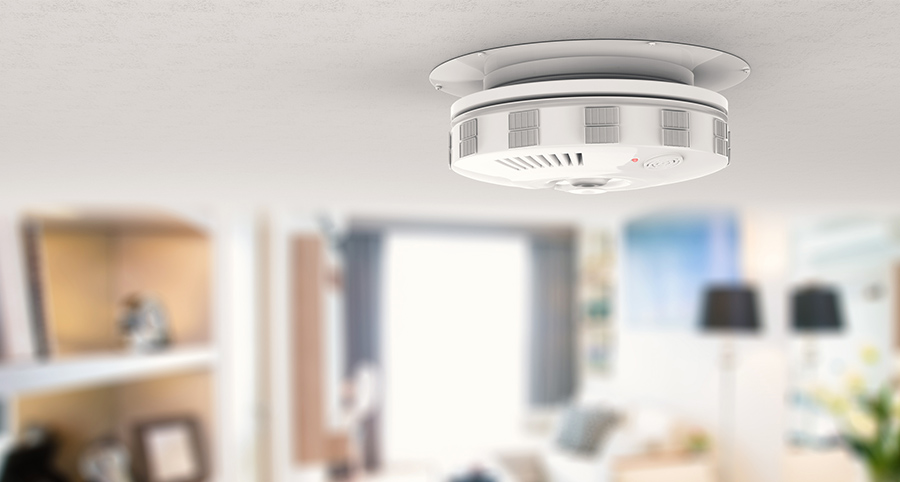Are there differences between regular smoke detectors vs. monitored fire alarms in Fargo?

In the Fargo smoke detector vs. monitored fire alarm argument, it's obvious that a monitored fire alarm is the better choice"> for your home. Smoke detectors are an important consideration in guarding your place from fire, but they have some notable drawbacks. On the other hand, monitored fire alarms have more methods to identify an emergency and may contact your support team when disaster strikes. Pairing your fire alarms to a comprehensive smart home also results in additional perks that your regular smoke detectors would only wish for.
The drawbacks of ordinary smoke alarms in [[targetlocaion]]
Protecting your home from fire is a crucial consideration, and smoke detectors take on an essential part in safeguarding your family. Even so, smoke detectors have some drawbacks. For instance, they are only able to react to smoke, not heat. If there is an emergency in your house, you would not be warned before the smoke rises to the smoke detector. Even though there are additional unmistakable signals of fire -- like a sudden rise in heat -- if there’s a lack of smoke, you will fail to get a triggered smoke detector.
What’s more, smoke detectors only activate when they detect enough smoke. When a fire begins slowly, you may not be cautioned until the situation is out of hand. Some smoke detectors employ more than one sensor, meaning they will be able to perceive smoke from both a raging fire and smoldering remnants. Then when they do go off, it's up to the resident to contact first responders after safely leaving the premises.
Monitored fire alarms do much more than standard smoke detectors
Although they look about the same as standard smoke detectors, monitored fire alarms can do much more. When integrated to a complete home security package, they will:
- Discern fire with different sensor types: Comparable to a standard smoke detector, your monitored component can engage from an active or passive fire. It will emit a high-volume warning when it perceives danger.
- Discover fire due to a sudden rise in heat: Your monitored fire alarm can even go off if it senses an abnormal increase in heat. Frequently, heat arrives in advance of smoke. Added methods to detect a fire equates to additional methods to protect your loved ones.
- Notifies professional monitoring specialists: Fires may take place when you are home or away. Either way, your fire alarms will warn your monitoring agents, who will swiftly contact the fire department. When every moment matters, it's great to realize that someone is constantly keeping a watch of your residence.
- Pairs with home automation: Although the main task of a fire alarm is to detect fire and call for assistance, it will also integrate with other automated devices. For instance, a tripped alarm could make your system start the exhaust fan to impede the flames or trigger lighting so you can locate the best path out of the property.
Your monitored fire alarms are an important aspect of a comprehensive smart home
The easiest method to get the most from your fire alarms is to integrate them with a Vivint home security system. Consult with a Vivint security agent today and find the ideal smart home for your needs. Place a call to (701) 699-4489 or submit the form on this page to get started.